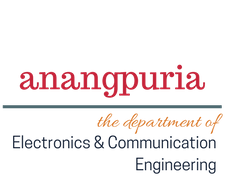This branch of engineering has emerged with time and advancement of technology and has lots to offer. This branch sprang out from the invention of telegraph and thereon extended its dithe mensions many-folds from radio, telephone, television, satellite communication to control engineering, instrumentation, VLSI design and now it is allied with robotics also. This is a promising field in near future as India is moving towards self-reliant in technology sector.
Experimental Learning
The approach of “Learning by doing” not only makes the student creative, moreover it enhances the productivity by experimental techniques. Self-doing helps in increasing their confidence in carrying out the physical activities rather than sitting and listening to the lecture.
Co-operative Learning
Books are the best friends; however, friends are the whole Wikipedia. The Department provides the group tasks and team projects to students in collaboration with faculty members so that the students can value time and understand the other’s viewpoints.
Case Studies
Students are guided to study the research papers related to their subjects. Reports are presented during the lectures.
Assessment and Evaluation
The evaluation is carried out regularly to keep a check on the student’s academic progress. Doubt classes are carried out regularly.
Inquiry Learning and Feedback
Students indulge in a healthy interaction with the faculties of the department and raise their queries after completion of each section of the syllabus.
Seminars
The department conducts seminars on technical and non-technical topics. In addition, students are sent to various institutes and universities to attend seminars and present their work.
Interactive classrooms
The Department includes interactive classrooms which facilitate projectors and processors. PPT presentations are conducted during the lectures wherein students understand the importance of presentations and communication skills.
State of Art Laboratories
The department has well-equipped laboratories with up-to-date hardware and technologies.
Departmental support
From HOD to all the staff members are there to support, counsel and guide all the students. The coordinators and mentors are allotted with 5-6 students to help them throughout their degree course. Extra classes are provided to the students to enhance their academic knowledge. These classes are carried out at the end of semester before the final exams.
Quiz and assignments
Analysis and evaluation are also carried out in the form of Multiple Choice Questions and Quizzes.
Peer Teaching and Learning method
Activities are carried out in the department which includes Team work and Peer Teaching.
Lecture Plan
Students are provided with Lecture plan of all the subjects at the starting of the semester. They have an access to find the dates, topic names, books (references), Question Banks of each lecture through their ERPs.
Time Table
The USP of the timetable followed in the department lies in the fact that equal focus on theory and practice is provided. The practical labs follow up theory lectures so that the students can apply their fundamentals there.
Project work
Minor and major projects are undertaken by the students under VAC Program with the help of faculty. The new technologies studied under VAC program help them to be concurrent with the industry requirements.
Departmental Technical Activities
Various technical activities are carried out in the department to enhance the technical knowledge of the students. Students along with their respective guides work in synchronization towards solving any daily life technical problem.
- Signals and its modulation, demodulation amplification, filtration, compression, error checking
- Transmission of information across the channel and its modulation
- Power consumption, signal strength, waveguides, radio frequency, temperature control through sensors
- Embedded system design and very large scale integrations
